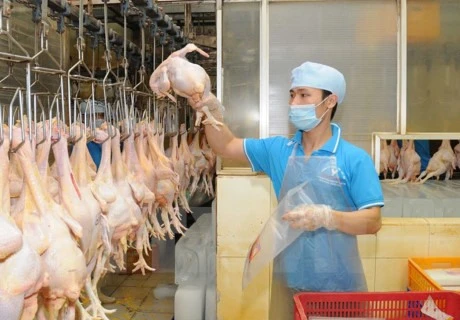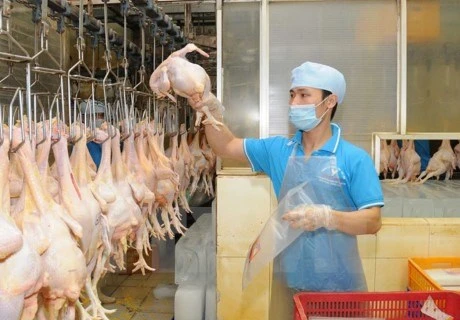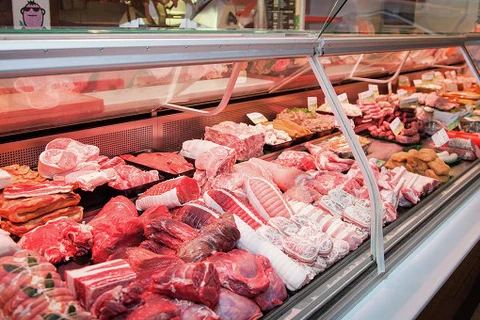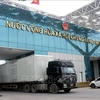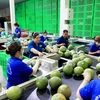Hanoi (VNA) - Due to the poor competitiveness of livestock products, Vietnam’s breeding industry will be significantly impacted by the Comprehensive and Progressive Agreement for Trans-Pacific Partnership (CPTPP), according to experts.
Pork, beef and milk are the products set to be the most influenced by the trade deal.
According to former head of the Department of Animal Husbandry under the Ministry of Agriculture and Rural Development (MARD) Hoang Thanh Van, although many efforts have been made to improve quality, Vietnamese livestock products still have to struggle to compete with imported products.
When the CPTPP takes effect, beef and milk products from Australia and New Zealand, and pork and chicken from Canada are forecast to enter Vietnam market in large volume. This could change consumption trends in Vietnam, causing an effect on the domestic livestock sector.
Another barrier to Vietnam’s livestock sector is that production still depends on imported materials, especially those for producing animal feed and breeding animals.
Vietnam imports breeding cows from Australia and swans from France,wheat from Russia, Australia and Canada, and corn from Argentine and Brazil.
The MARD said the import value of animal feed and materials reached 3.2 billion USD in the first 10 months of 2018, up 17.4 percent against the same period last year. Meanwhile, export value of livestock products reached only 455 million USD.
The CPTPP also includes strict regulations on disease-safe lifestock areas. The most demanding markets such as Japan, Chile and Singapore are applying strict technical barriers for imported livestock products.
Vietnam has only 50 areas (at the district level) and 1,092 livestock production units with disease safety certificates, below the country’s target.
However, experts said the CPTPP would also bring opportunities to the sector.
It will help enhance the management capacity of domestic firms, thus improving competitiveness for their products.
Vietnam will become more attractive to foreign investors, especially those operating in the livestock industry. Many domestic and foreign firms are seeking to invest in the field.
Experts said the sector insiders should pay attention to developing products not subject to high competition, while building long-term strategies for the sector.
They suggested the expansion of linked chain breeding models to enhance connections among enterprises, farms and cooperatives to make origin tracing easy and to encourage enterprises to apply high technologies in the industry.
Firms have been advised to seek more markets for livestock products.
Vietnam currently exports processed chicken to Japan, frozen pork to Malaysia and salted duck eggs and quail eggs to Singapore and Australia. However, the turnover of these products is limited.-VNA
source


